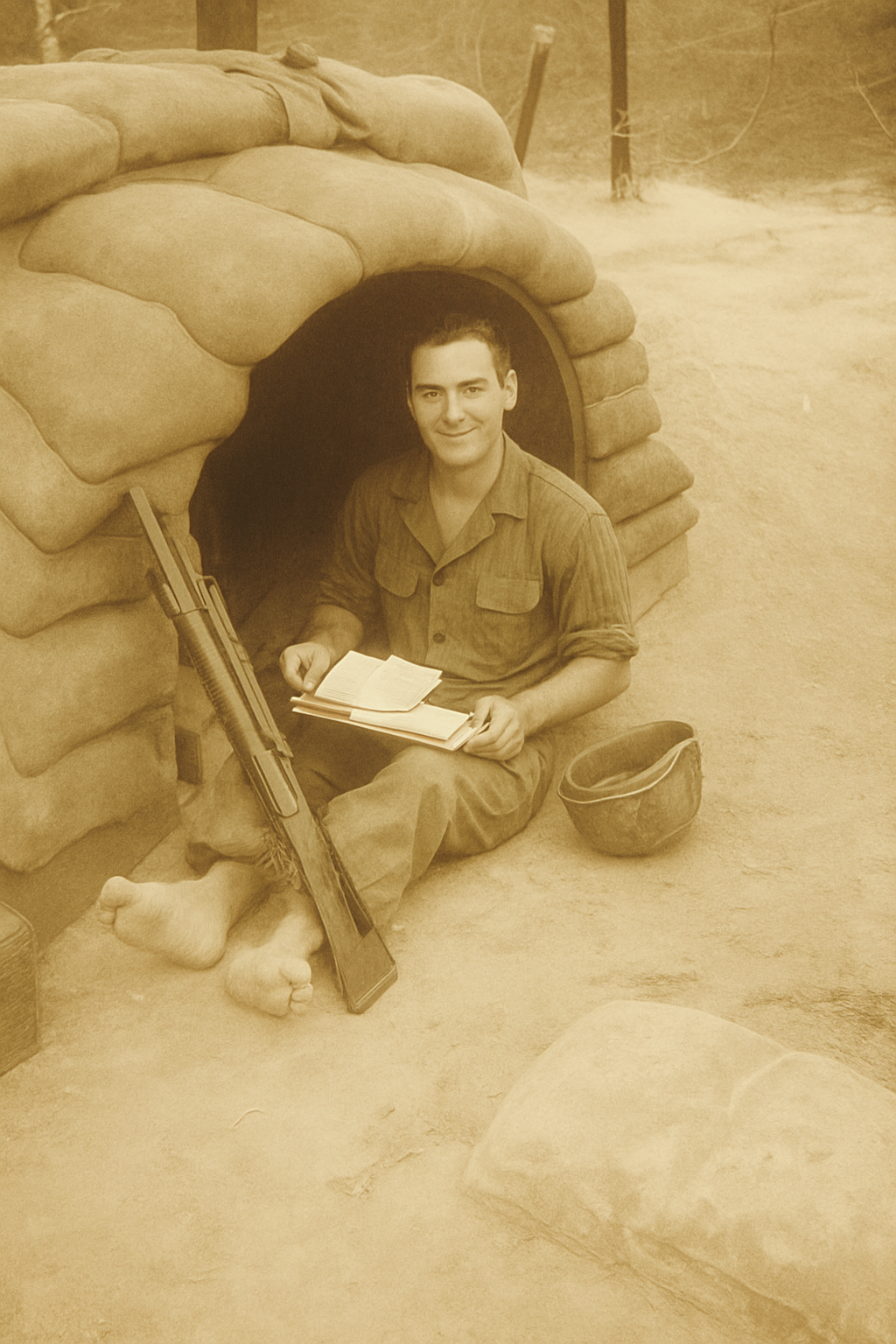Hard to Kill in Place of Fragility
By Dr. Keith M. Waggoner
The Problem
Most men today are not prepared for life’s battles. They live fragile lives. Fragility is not just physical weakness. It is an entire condition of the soul. It is the man who snaps at his wife because he cannot control his emotions. It is the man who collapses under financial pressure because he never learned discipline with money. It is the man who looks strong on the outside but is spiritually hollow, easily swept away by temptation and lies.
Fragility means being breakable. It means the smallest resistance topples you. It is the man who says, “I’ll start working out next year.” It is the father who says, “I’ll get back to prayer when things settle down.” It is the leader who says, “I’ll face this problem when it gets worse.” Fragility always delays. Fragility always hides. Fragility always leaves you unready for the storm.
And storms always come.
That is why I use the phrase hard to kill. To be hard to kill is not about becoming a super soldier or walking around with bravado. It is about becoming the kind of man who is unshakable in body, steady in mind, and rooted in spirit. It is about being competent and prepared for whatever life throws at you. It is about knowing you cannot be destroyed by temptation, despair, or fear.
When you know you are hard to kill, you carry yourself differently. Your wife senses it. Your children feel it. Your community respects it. You stop living like a breakable man and start leading like a man of substance.
A Story That Could Be Yours
Jason was in his early forties, married, with kids at home. He had built a decent business and looked successful to everyone around him. But inside, he knew the truth. He was exhausted. His health was slipping. He was snapping at his wife and children. He carried stress like a weight on his chest.
His doctor gave him a warning: blood pressure climbing, blood sugar rising, stress hormones out of control. Jason’s body was fragile, and it was showing up in his family too. His wife said she felt alone. His kids said he was always angry.
Jason could have excused it. He could have said, “This is just life.” But he chose differently. He chose to fight for resilience.
We started small. Breathwork every morning to reset his nervous system. Pushups before breakfast. A walk after dinner. Gratitude journaling every night. Scripture in the morning.
He surrounded himself with a circle of strong men who would not let him quit. He spoke his commitments out loud and followed through. Slowly, his body began to change. His sleep deepened. His energy returned. His wife said, “I feel like I have my husband back.” His kids started looking for him again.
Eighteen months later, Jason was down forty pounds. He was off medication. He was leading with confidence. He said, “For the first time in my life, I know I am hard to kill.”
Why I Recommend These Transformations
Jason’s story shows us the truth. Men do not fail because they lack desire. Men fail because they never built resilience. They try to live on comfort, willpower, or distraction. That is why I guide men through three transformations. When you practice these, you replace fragility with resilience. You stop being the man who falls apart, and you become the man who stands.
1. Physical Resilience in Place of Weakness
A weak body weakens everything else. If your body is fragile, your mind will be foggy, your confidence will be low, and your presence will be unstable. But when you build physical resilience, you gain energy, focus, and a calm strength that everyone around you can feel.
How I coach this, step by step
-
Start with breath. Three rounds of the physiological sigh every morning. Two short inhales through the nose, one long exhale through the mouth. This resets your stress response.
-
Move daily. Five workouts a week. Two strength, two conditioning, one mobility. Keep score with simple metrics: pushups, squats, pullups, or running times.
-
Fuel wisely. Eat more protein, cut sugar, and hydrate with at least two liters of water daily.
-
Guard recovery. Sleep is training. Track hours and resting heart rate each morning.
Case Study – David
David began with ten pushups and a nightly walk. Within three months, he was lifting weights and running two miles. He told me, “Strength in my body gave me strength in my spirit.”
2. Emotional Grit in Place of Reactivity
Physical strength means little if your emotions are fragile. Fragile men lash out in anger, withdraw into silence, or numb themselves with screens. Strong men learn to respond with steadiness. Emotional grit means you can carry the weight of conflict, pressure, and pain without collapsing.
How I coach this, step by step
-
Identify triggers. Write down the last three times you lost control.
-
Install the pause. When pressure spikes, breathe once, count to three, then speak.
-
Reframe with gratitude. Every night, write three specific things you are thankful for. Name your wife. Name your children. Name the brother who stood with you.
-
Practice recovery. After failure, write one lesson and one action for next time.
Case Study – Michael
Michael had a short fuse. After three weeks of practicing the pause, his wife said, “You are safe to talk to again.” His kids said, “Dad laughs more now.”
3. Spiritual Resolve in Place of Drift
Even with a strong body and steady emotions, you will not last without spiritual roots. Life will test you with temptation, despair, and lies. If you are spiritually fragile, you will fall. If you are spiritually resolved, you will endure.
How I coach this, step by step
-
Begin with scripture. One chapter every morning. Write one line of application.
-
Pray with your family three times a week. Keep it simple, strong, and specific.
-
Confess in your community of men. Share one area of struggle with brothers you can trust who will speak truth and pray for you.
-
Fast weekly. Choose one distraction and replace it with silence, worship, or scripture.
Case Study – Brandon
Brandon admitted pornography had crept back into his life. He confessed it to his community of trusted men. He fasted from screens one night each week and filled that time with prayer and journaling. Within weeks, the habit broke, and intimacy with his wife was restored.
A Simple First Month Plan
Do not overcomplicate this. Start small. Consistency matters more than intensity.
Week One
-
Daily breathwork.
-
Ten pushups every morning.
-
Gratitude journaling every night.
Week Two
-
Add two workouts.
-
Practice the pause in conflict.
-
Read one chapter of scripture each morning.
Week Three
-
Track sleep hours and resting heart rate.
-
Write one recovery lesson after failure.
-
Pray with your family once.
Week Four
-
Add one mobility or cardio workout.
-
Confess one struggle to a trusted brother.
-
Fast from one distraction for 24 hours.
The Outcome
When you live this way, you are no longer fragile. You are not easily shaken by temptation, despair, or pressure. You are steady in your body, calm in your emotions, and rooted in your spirit. You know you are competent. You know you are strong. You know you are hard to kill.
Your wife feels it. Your children feel it. Your community sees it. You are no longer breakable. You are a man who stands.
The Invitation
Your time is now. Begin the breathwork. Pick up the weights. Anchor yourself in scripture. Build a circle of men you can trust. Do not wait for crisis to reveal your fragility. Train now for resilience.
At Undisputed Mastery Part One: Becoming Champions, men train to be hard to kill. Over three days of fire, sweat, and clarity, they confront weakness, discover strength, and forge brotherhood that lasts.
This is not theory. It is measurable transformation.
Watch the video and learn more at undisputedmastery.com. If you want coaching to implement these steps in your life, reach out today. The work begins now.

